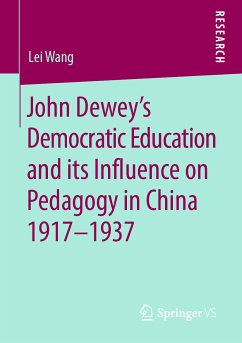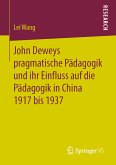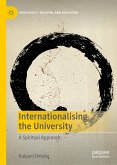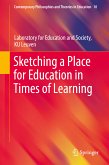Lei Wang researches John Dewey's pedagogical influence on the historical context of China and compares his observations and his basic democratic approach with the concepts and practical implementation of his Chinese students. As a result, it turns out that the spread of pragmatic philosophy in China was accompanied by reductionism, misunderstandings, Confucian doctrine and nationalism and that Dewey's reform proposals can open a democratic perspective on current challenges in Chinese society. On the occasion of the 100th anniversary of Dewey's research trip to China, the author emphasizes the contemporary significance of his work. The results of her study can clarify and correct errors that continue to have effect today.
Contents
- Dewey's view of China and his proposals for social reconstruction and educational reform
- Dewey's lectures in China - limitations, misunderstandings and translation errors
- Dewey's influence on pedagogical professions in China
- The concepts and practices of Hu Shi and Tao Xingzhi
Target Groups
Lecturers and students of pedagogy, sociology and sinology, specialists in international Dewey research, historical and comparative educational research
The Author
Dr. phil. Lei Wang is a researcher at the Dewey-Center Cologne, and teaches Educational Science at the Human Sciences Faculty of the University of Cologne. She is a trainer and consultant in the topical fields of inclusion, intercultural conflict resolution and change management.
Dieser Download kann aus rechtlichen Gründen nur mit Rechnungsadresse in A, B, BG, CY, CZ, D, DK, EW, E, FIN, F, GR, HR, H, IRL, I, LT, L, LR, M, NL, PL, P, R, S, SLO, SK ausgeliefert werden.









